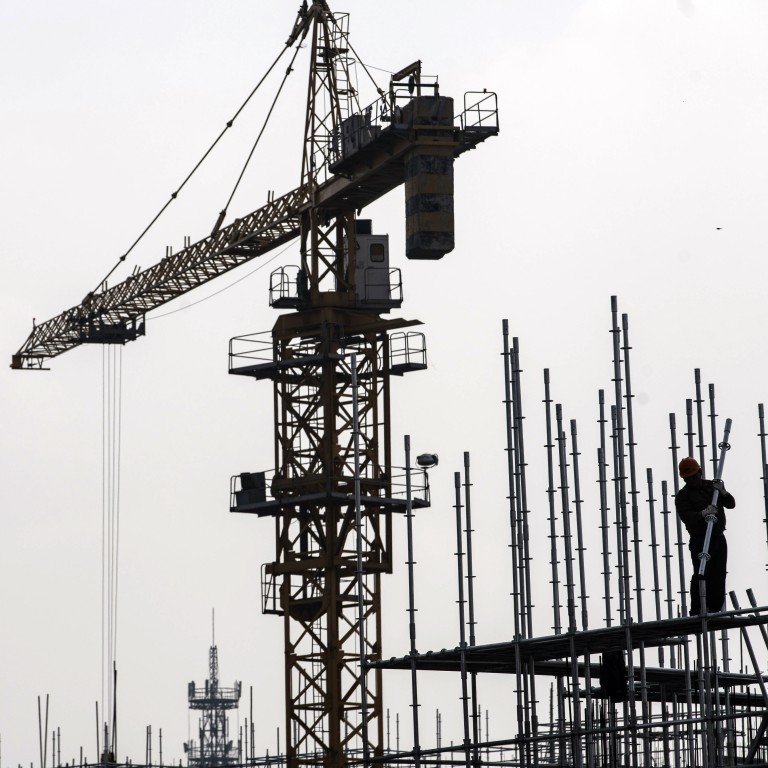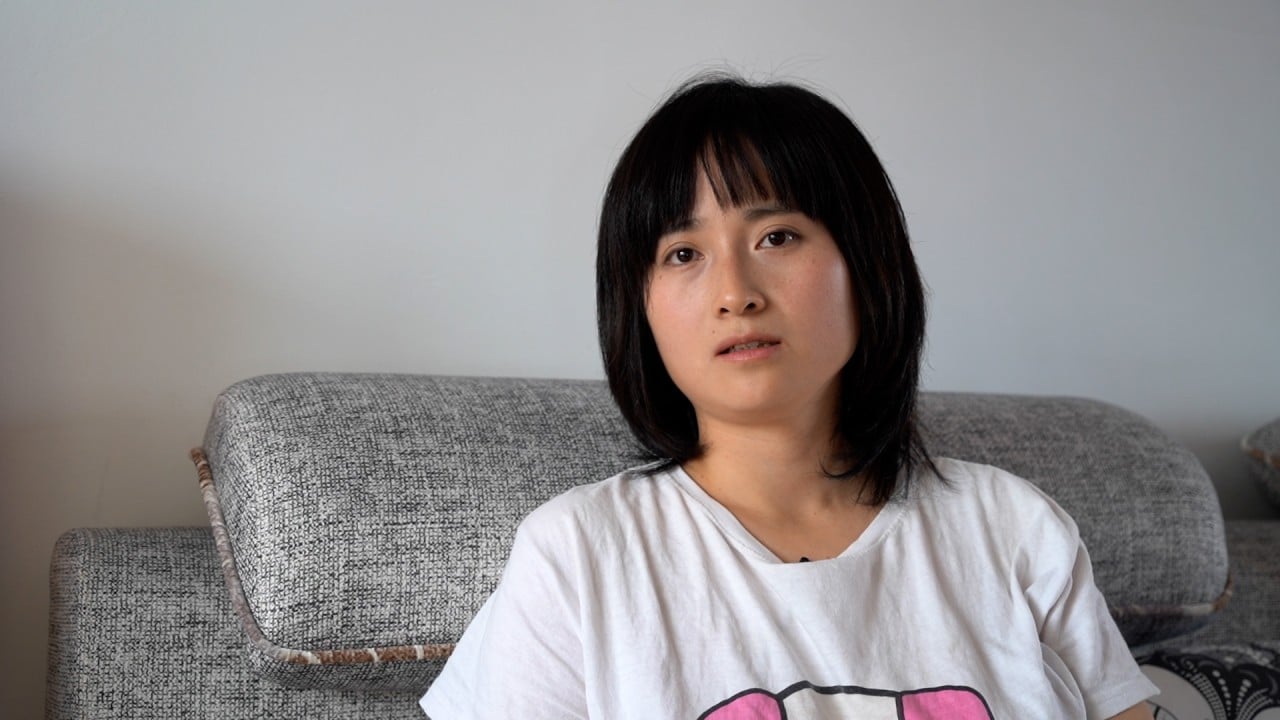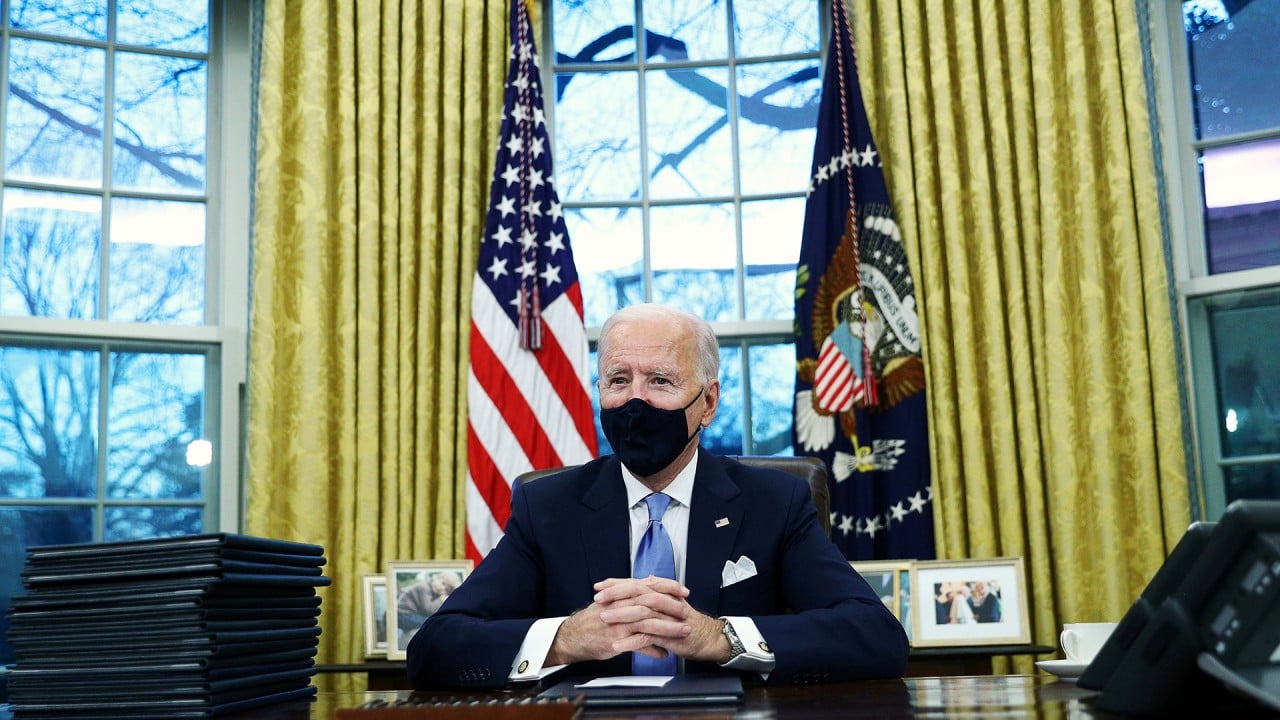
Why China is cooling, not deflating, the property market bubble
- Beijing depends on China’s property bubble for revenue and has been managing it by keeping a lid on inflation
- But the yuan’s soft peg to the dollar means Washington’s decisions – and addiction to stimulus – have an impact on China’s asset prices
Tightening measures have been put in place to cool the market. If the past pattern persists, tightening will continue until worries about economic growth dominate again. This surge-pause-surge pattern has defined China’s property market for the past 15 years.
The cumulative effect is a bubble on a scale not seen before: the value of the housing stock is some six times GDP; funds in property construction are half the gross domestic product; debt has surged to around 350 per cent of GDP, and; in big cities, the average property price is around the average yearly disposable income per square metre.
The seeds of the latest boom were sown during the trade war. Amid pessimism, the government loosened the credit spigot in 2019, then had to keep it open for another year during the pandemic. China’s outstanding total social financing was 284.8 trillion yuan (US$44 trillion) at the end of December 2020, up 13.3 per cent from a year earlier, while China’s GDP grew 2.3 per cent to 101.6 trillion yuan last year.
The difference between these two sets of numbers raises the question of where the borrowed money went. Obviously, there has been hanky-panky in credit creation and circulation. For a long time, the government looked the other way because such irregular activities were supportive of short-term fiscal and economic stability.
China’s property bubble is really a government creation. It has lasted so long because the government owns land and needs revenue. As Beijing owns the financial system too, it can fine-tune credit flows to speed up or slow the property boom. The surge-pause-surge pattern has convinced speculators and end users that the government can sustain it forever. Hence, every pause is a buying opportunity.
It is becoming increasingly popular to argue that the Chinese government has figured out a way to sustain the bubble forever. Beijing has many abilities, but making a bubble last forever isn’t one of them. For thousands of years, Chinese emperors tried to achieve immortality by swallowing all kinds of stuff. None worked.
Population decline could end Chinese civilisation as we know it. When will Beijing wake up to the crisis?
What the Chinese government has done is to channel money away from inflation for a few years, which prolongs the bubble. Five national insurance funds plus social security account for half the labour costs for most businesses. This cuts the inflationary effect of wage increases.
Maintaining expectations of property inflation is deflationary in the short term, as people save up so they can buy property as soon as possible. The Chinese government controls the financial system and the media, additional tools which help it sustain high leverage.
To be accurate, the government is better able to control inflation expectations than inflation itself. No bubble can last forever. Could the value of all residential properties reach 10 times GDP? Possible, but it would be dicey. Twenty times? Highly unlikely.
Liquidity tightening has affected the stock market, especially in the most speculative parts: tech and small-caps. The ChiNext Index is down more than 20 per cent from its high last month. Even Moutai is down 23 per cent from its recent high.
The spirits maker is the poster child for China’s liquidity bubble. Its share price has skyrocketed since the stock market bubble burst in 2015. The product has become an object of speculation, as the masses stock up on the fiery liquor anticipating price appreciation. This has, in turn, boosted the company’s sales and pricing power.
Kweichow Moutai surpasses Shenzhen economy
The property market isn’t liquid like the stock market. The clampdown on liquidity has hit the equity market first, because it is easier to meet cash calls though stock liquidation. The odds are that the pressure on the stock market will continue.
The Chinese government depends on the property bubble for revenue. It will never give up on it voluntarily. Periodic clampdowns are necessary to slow the market, lest it overheats and blows up. The current measures are no exception.
While the government wields many unconventional tools at home, the renminbi’s soft peg to the dollar remains the only external anchor. It drives internal demand for the Chinese currency despite all the risks in the financial system and asset market. This is why the US Federal Reserve’s policy decisions have such an impact on China’s asset prices.
As American politicians have tasted the benefits of going big – giving out money without consequences like the dollar crashing or interest rates surging – they can be expected to keep doing it.
Two decades ago, the US chaperoned China into the World Trade Organization and created this world of cheap stuff and asset inflation. It would be poetic justice for the Americans to burst the bubble.
Andy Xie is an independent economist



